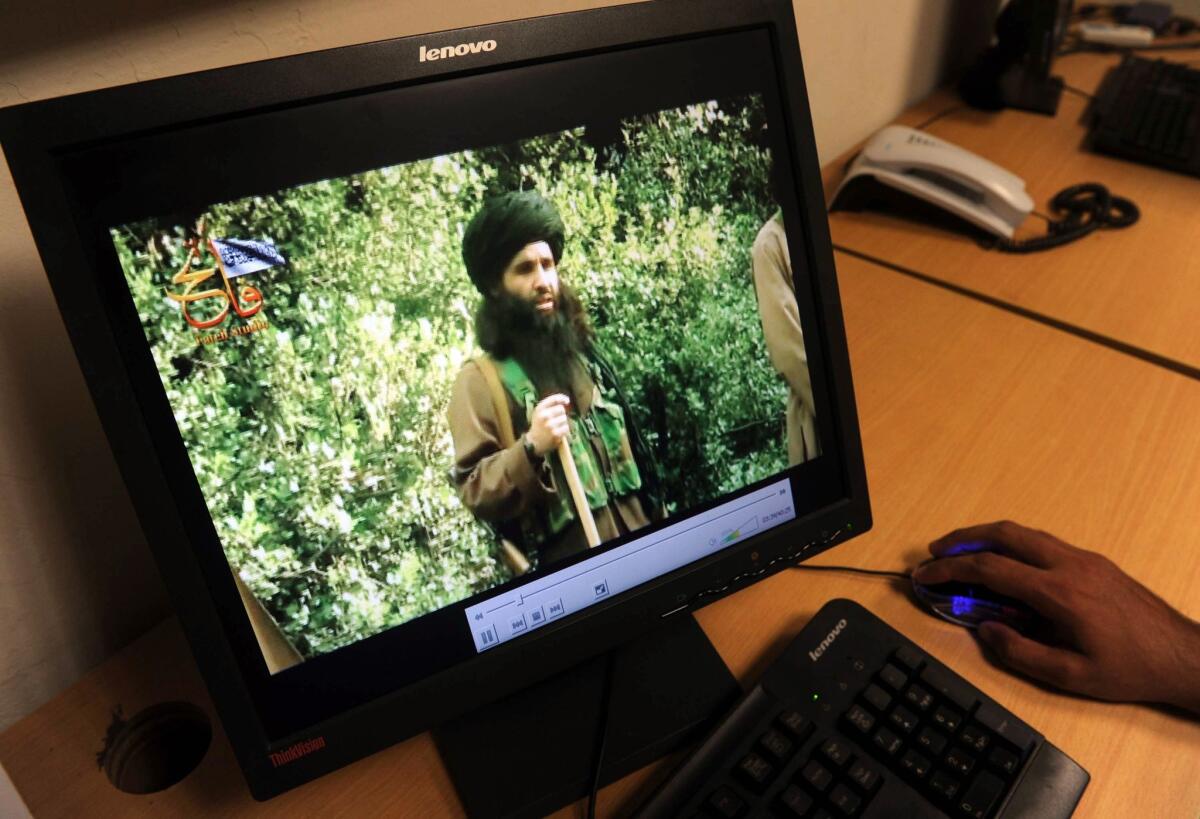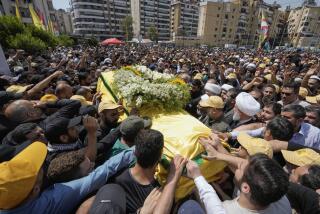Pakistan Taliban names militant who ordered attack on schoolgirl as leader

PESHAWAR, Pakistan – The Pakistan Taliban on Thursday named Mullah Fazlullah, the militant commander who oversaw the assassination attempt against schoolgirl activist Malala Yusufzai, as its new chief, damping hope for a peace agreement between militants and the government.
Fazlullah, known as “Radio Mullah” for his fiery sermons on an illegal FM station, replaces Hakimullah Mehsud, who was killed last week in a U.S. drone strike in lawless North Waziristan bordering Afghanistan.
Fazlullah’s appointment was reported by Taliban caretaker leader Asmatullah Shaheen, speaking to the media by telephone from an undisclosed location in northwest Pakistan or eastern Afghanistan. Shaheen ruled out talks with the government and vowed that the Taliban would take revenge for the killing of Mehsud.
“There will be no peace talks with the government at all,” he said. “Pakistan has become a colony of the U.S.”
Shaheen said Fazlullah’s appointment dispelled the myth that there were differences among Taliban groups and showed the organization was united and well-organized.
Fazlullah led a brutal parallel Taliban administration in Pakistan’s northwest Swat Valley from 2007 to 2009, enforcing a hard-line interpretation of Islamic law by burning schools, flogging people in public and beheading accused “infidels” before an army operation retook the area. He publicized fatwas and orders for executing people during his broadcasts.
As Pakistan troops advanced in early 2009, Fazlullah fled with hundreds of his fighters over the porous border. He is believed to operate from Afghanistan’s eastern Kunar and Nuristan provinces.
Fazlullah reportedly ordered his men to carry out last year’s attack on Yusufzai, an advocate for education for girls and women. The schoolgirl, who was 14 at the time, was shot in the head but survived and was taken to Britain for treatment.
His group is also responsible for killing a major general in the Pakistan army in September.
Friday’s drone attack against Mehsud raised tensions between the U.S. and Pakistan, which said it was poised to open peace talks with the Taliban at the time. Interior Minister Chaudhry Nisar pointedly accused Washington of sabotaging dialogue, adding that the strike was “not just the killing of one person, it’s the death of all peace efforts.”
Analysts said Fazlullah was a compromise candidate after two main groups belonging to Mehsud’s tribe were unable to agree. Sheik Khalid Haqqani, a Taliban commander from the Swabi district of northeast Khyber-Pakhtunkhwa province, has reportedly been nominated as his second-in-command.
An early challenge for Fazlullah, analysts added, would be to bring under control fighters loyal to Mehsud, who account for the bulk of the Taliban’s manpower.
Other analysts said this appointment could strengthen ties between the Afghan and Pakistani Taliban, which are aligned but operationally separate, given that Fazlullah has lived in Afghanistan for several years.
“The distinction between the Pakistani Taliban and the Afghan Taliban is becoming more blurred,” said Gopalaswami Parthasarathy, a visiting professor at New Delhi’s Center for Policy Research and former Indian ambassador to Pakistan. “A clear nexus is emerging.”
The appointment of Fazlullah, a strident opponent of the Pakistan government, is likely to end any immediate hope for negotiations, others said.
“His appointment is a clear sign that the Taliban will not go for talks and would rather try to seek revenge against Pakistan for Hakimullah’s death,” said Sailab Mehsud, an analyst and journalist from South Waziristan who is not related to the slain Taliban leader.
A senior Taliban commander from the faction that favored Khan Said, alias Sajna -- a South Waziristan leader credited with masterminding a 2012 jailbreak that freed 400 inmates -- said they would accept Fazlullah’s appointment.
“The main focus of the organization right now is to take revenge for Hakimullah Mehsud’s killing in a drone strike,” he added.
ALSO:Defiant Mexican bishop denounces drug gangs, government
U.S. seeking freeze in Iran nuclear program during negotiations
Swedish film ratings for gender bias mark down many blockbusters
Twitter: @MarkMagnier
Special correspondent Ali reported from Islamabad and Times staff writer Magnier from New Delhi. Special correspondent Aoun Sahi in Islamabad contributed to this report.
More to Read
Sign up for Essential California
The most important California stories and recommendations in your inbox every morning.
You may occasionally receive promotional content from the Los Angeles Times.










